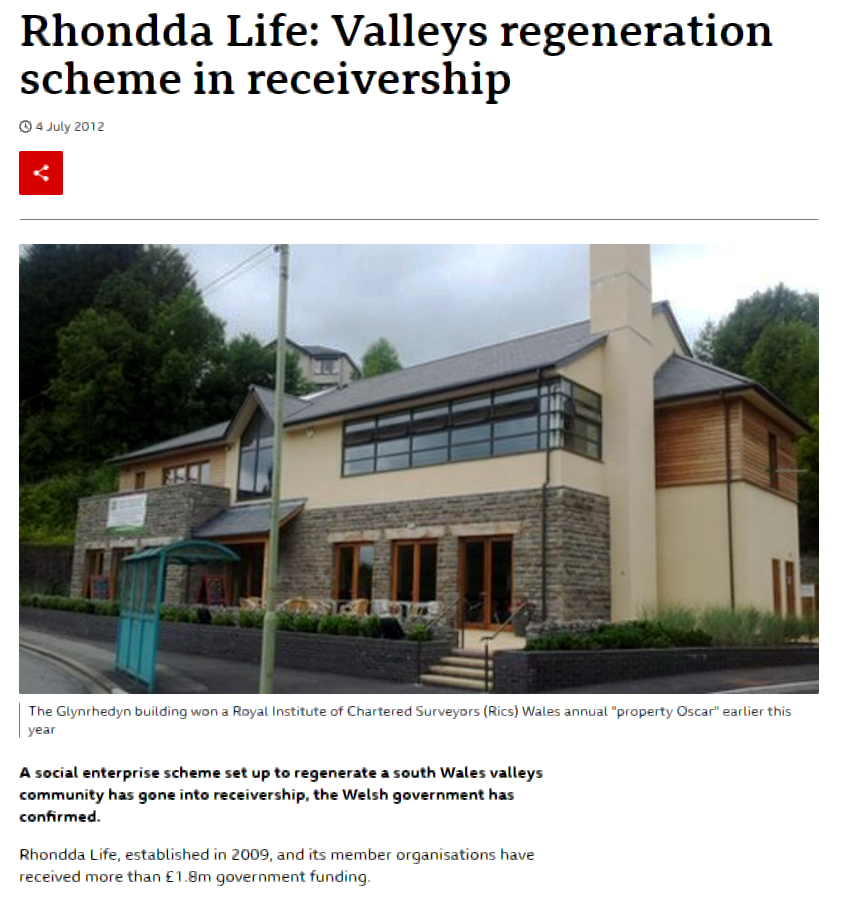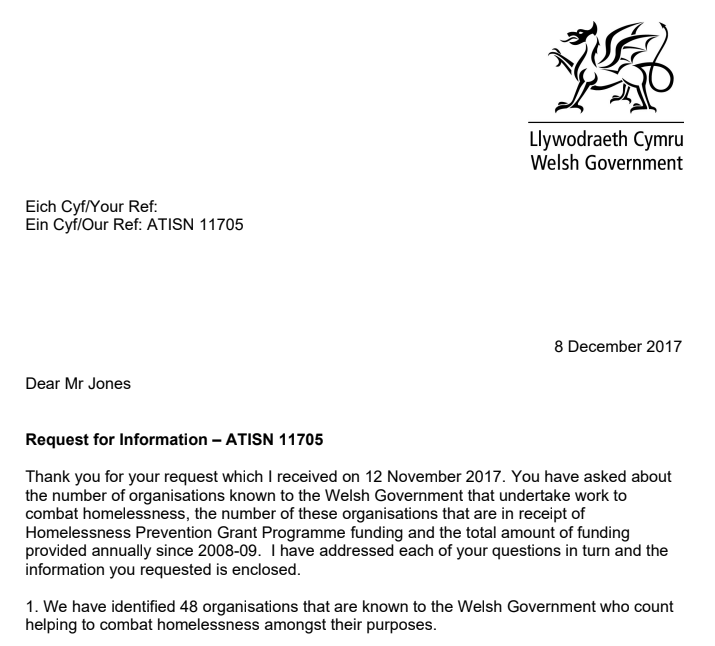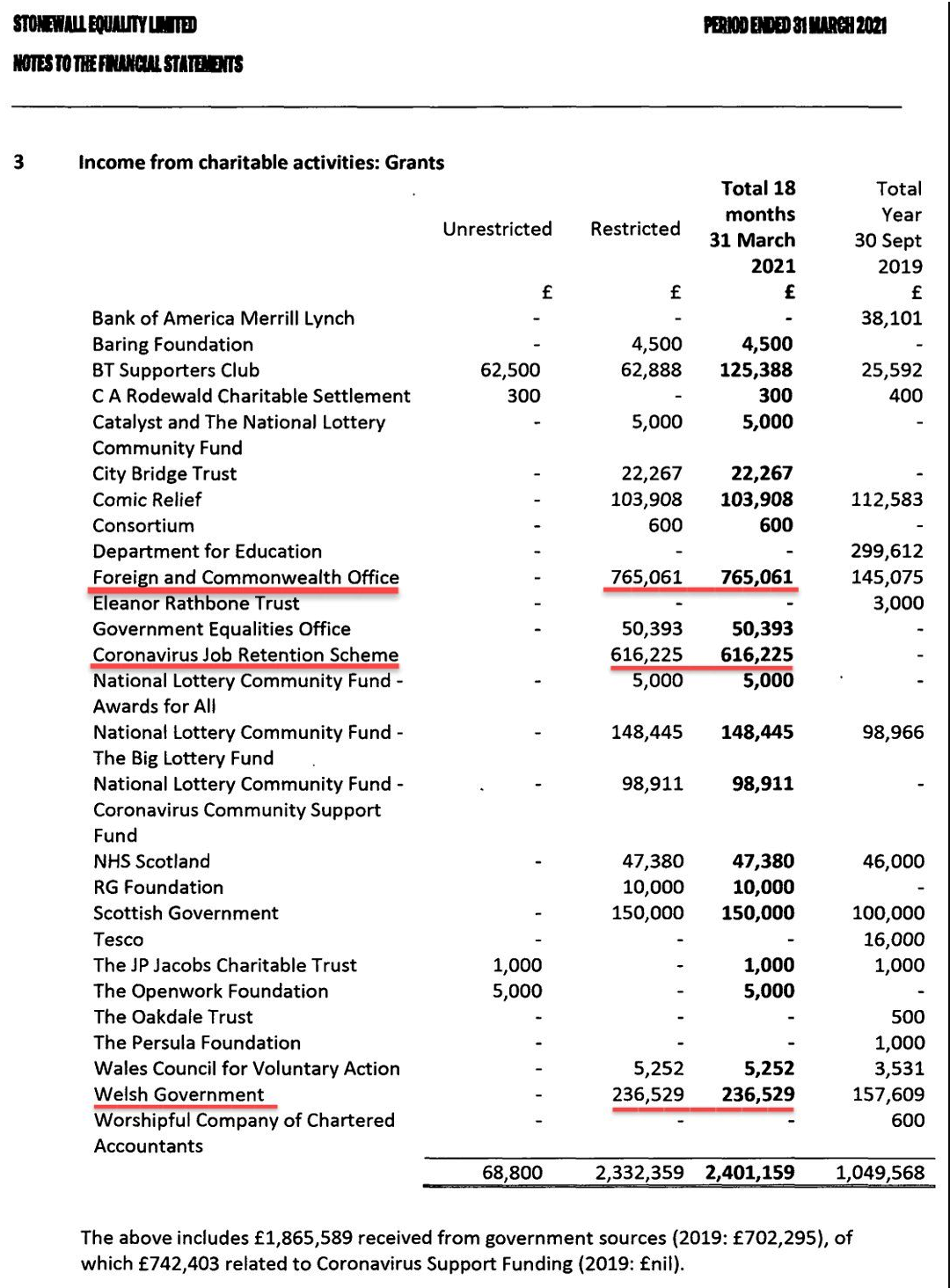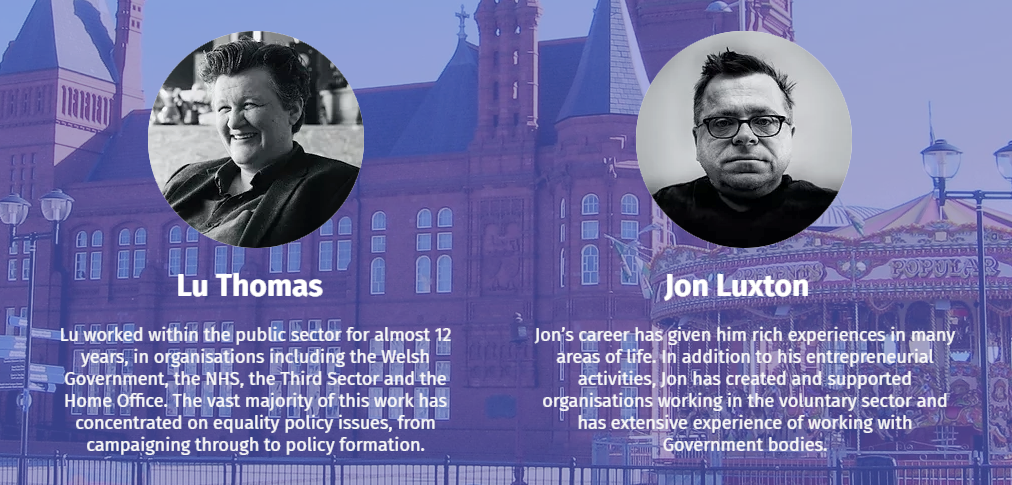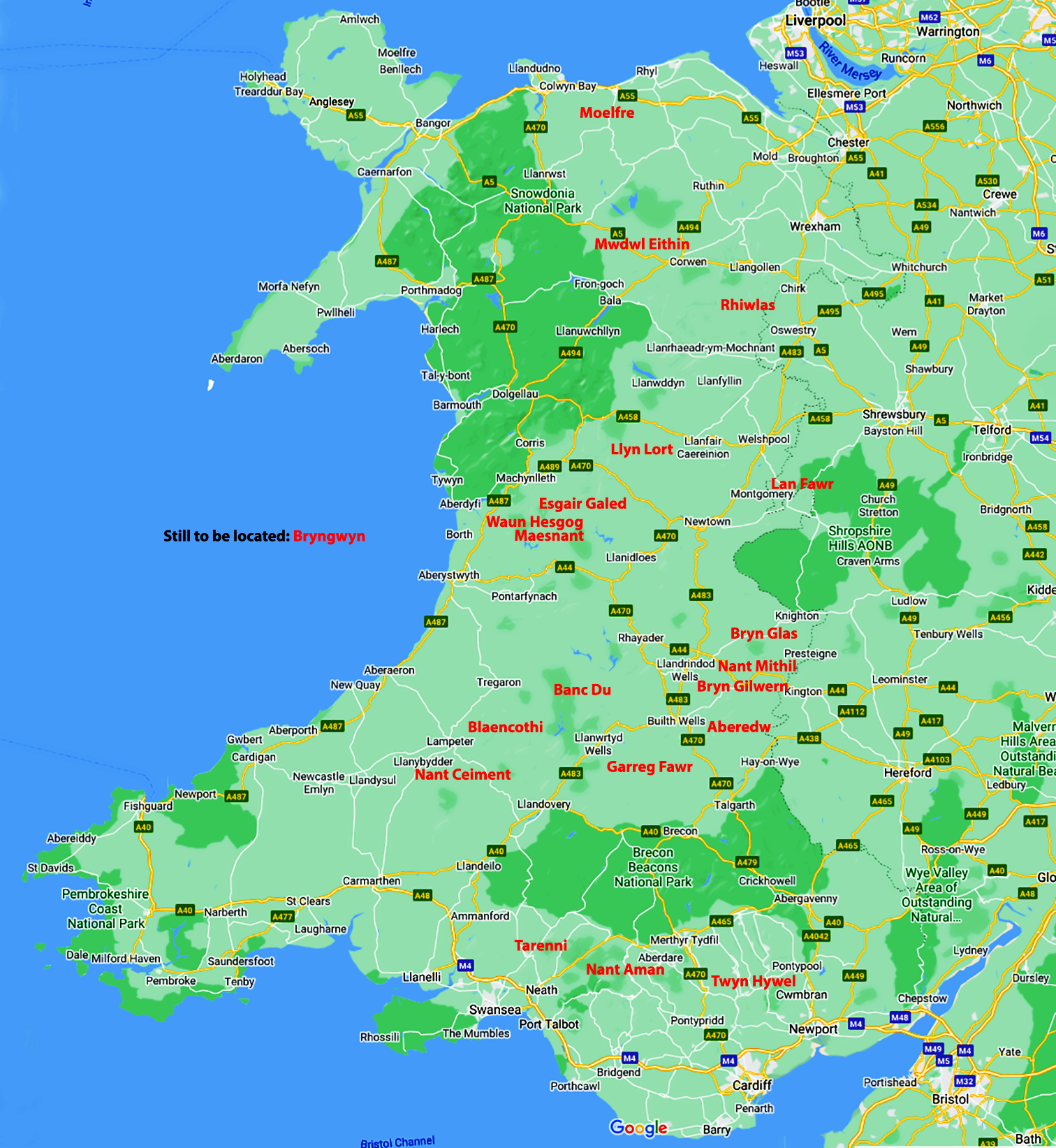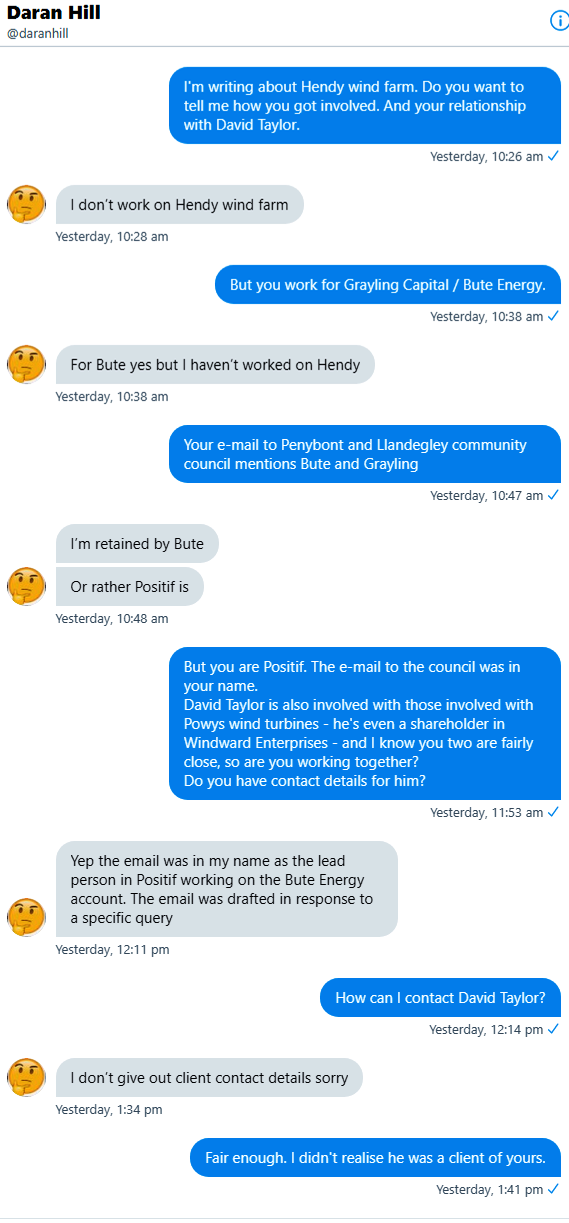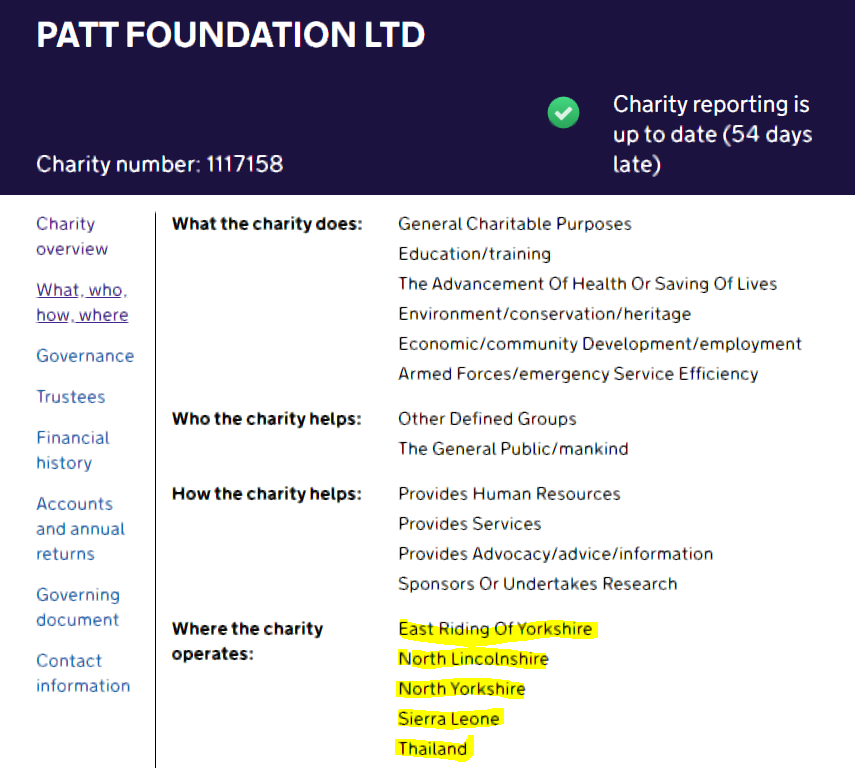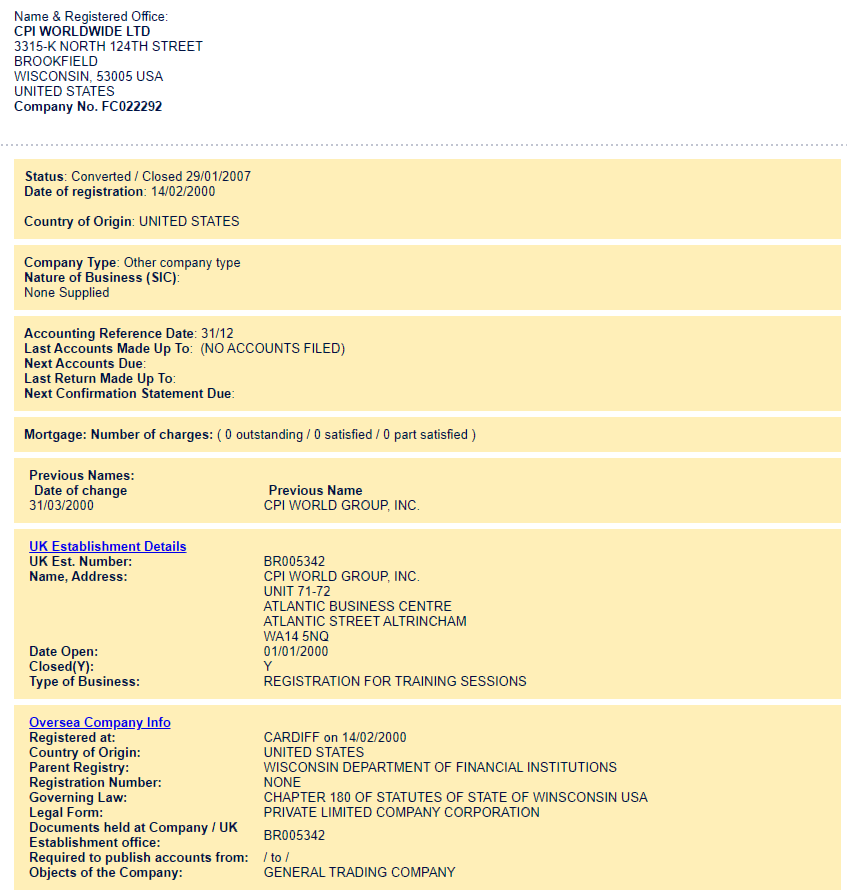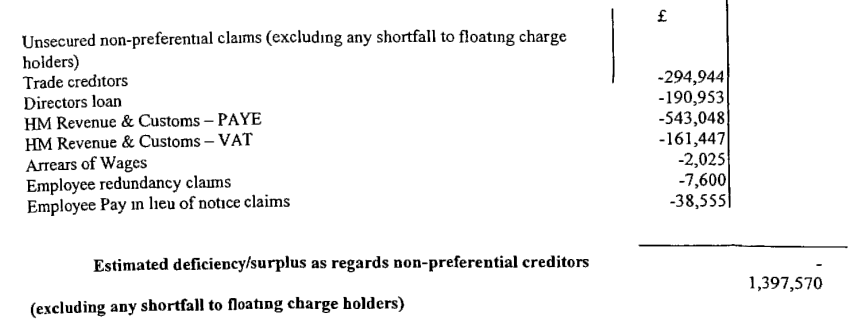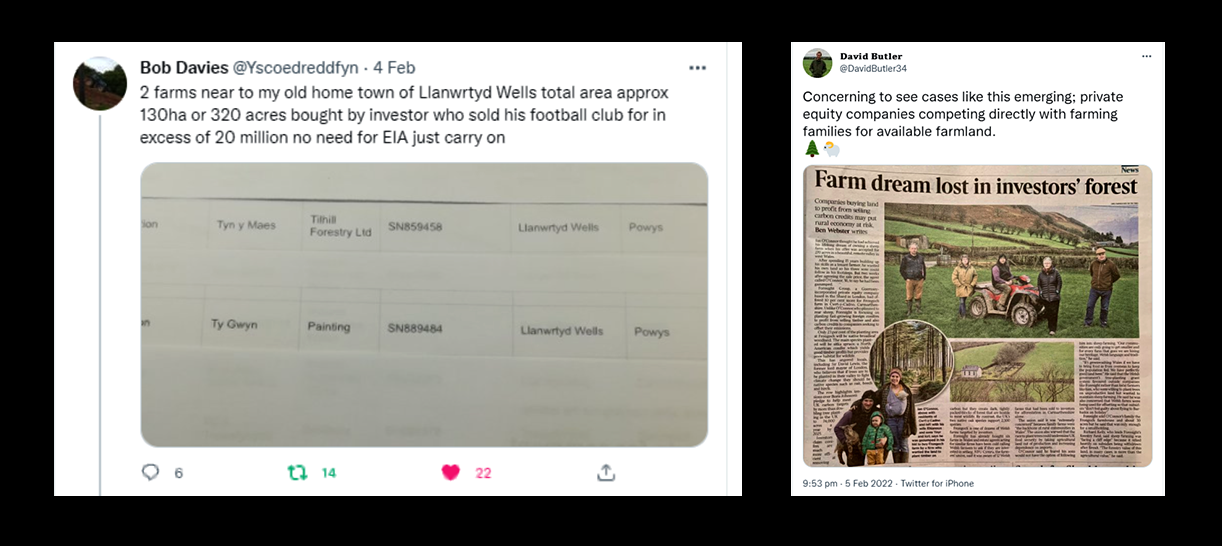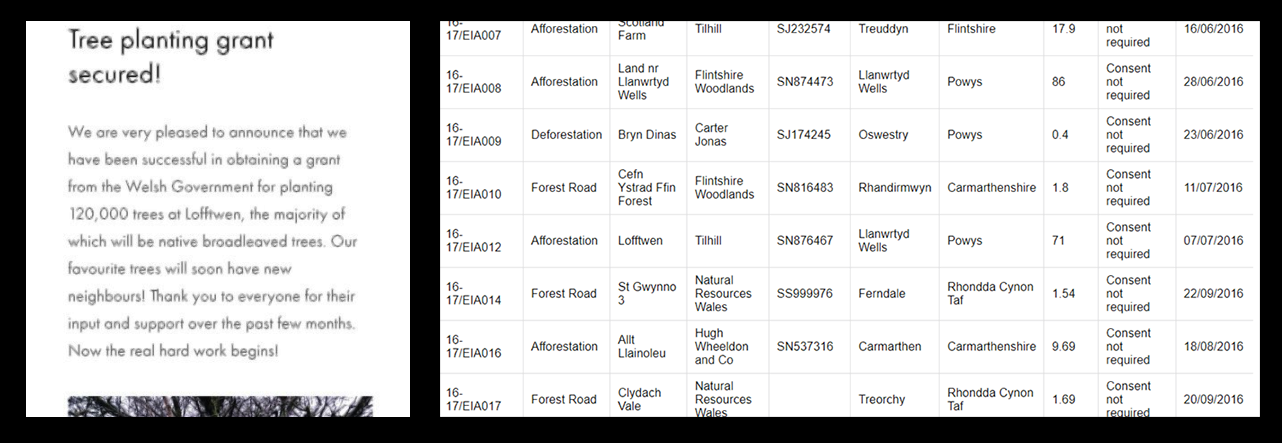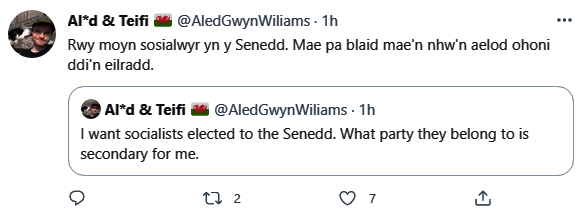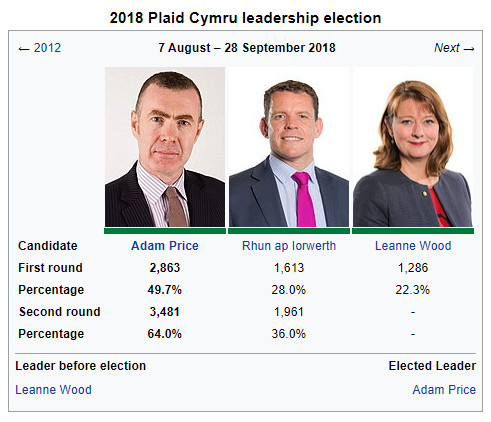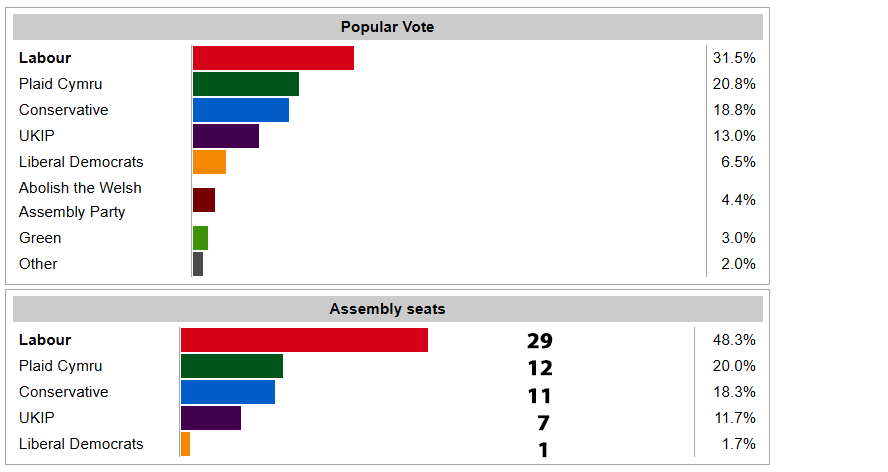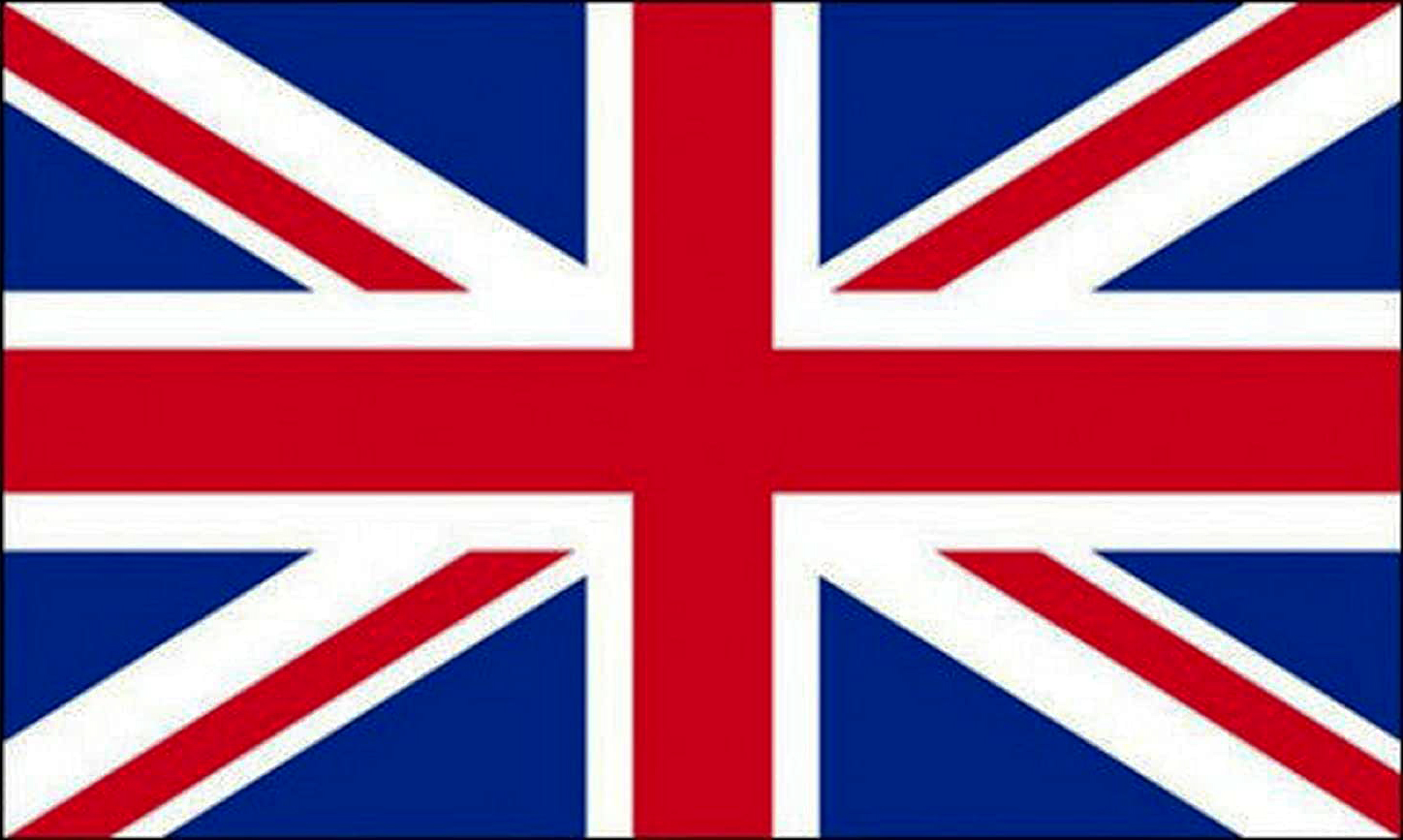![]() As the title suggests, this week’s offering is a miscellany, bits and pieces from hither and yon. Covering . . .
As the title suggests, this week’s offering is a miscellany, bits and pieces from hither and yon. Covering . . .
- Wind turbine disposal.
- Fears for the planning system in the north west.
- Awkward locals opposing the hundreds of executive homes Aberdyfi so desperately needs.
- A development in the ongoing saga of the Llanbedr by-pass.
- A new environmental group (cos we haven’t got enough).
- More on Gilestone farm.
- My unanswered FoI to the ‘Welsh’ Labour Party.
- ‘Welsh Government’ funds National Trust (cos NT’s a bit short at the moment).
- Is ‘Welsh Government’ flogging off executive homes in Cardiff?
- Enviroloonies saving Wales from the curse of employment.
- Stumping up for the ‘Welsh Government’s favourite farmer.
- ‘Welsh Government’ wants more trees . . . but fewer farmers.
- Ukraine.
- Enlarging the Senedd, or making the pig-sty bigger.
This is a monster issue, over 5,000 words; but you can take it a piece at a time. And because it is such a substantial offering late in the week, don’t expect anything next week.
Capice?
♦
WHERE WILL ALL THE TURBINES GO?
A couple of weeks ago I submitted a Freedom of Information request to the self-styled ‘Welsh Government’ asking who was responsible for disposing of wind turbines when they come to the end of their working lives.
Given that the lifespan of a turbine is 15 – 25 years we must have in Wales a few hundred turbines approaching decrepitude. With hundreds more in their ‘middle age’, and plans in the system to erect God knows how many others. (Bute Energy alone wants 20 new wind farms.)
It seems to me to be an important question. Hence the FoI request.
I was also mindful of what happened when certain opencast mining sites came to the end of their working lives . . . and it was found that responsibility for restoring those sites had been transferred to companies located in the British Virgin Islands.
You might also like to read this 2014 report produced for the ‘Welsh Government’ and entitled, ‘Research into the failure to Restore Opencast Coal Sites in South Wales’.
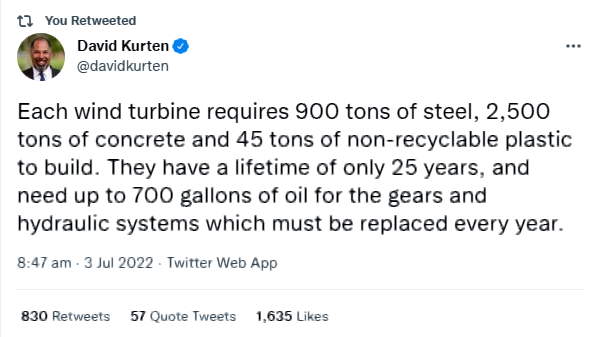
Here’s the response I received to my FoI.
It tells me that, ‘Responsibility for decommissioning wind turbines lies with the developer/operator of the site’.
Richard Spear of the Planning Inspectorate concludes his response with: ‘In addition, developers/operators should ensure that sufficient finance is set aside to enable them to meet restoration obligations. A local planning authority may require financial guarantees by way of a Section 106 planning obligation / agreement, as part of the approval of planning permission to ensure that restoration will be fully achieved.’
It’s worth pointing out that in most cases it was the ‘Welsh Government’ that gave planning permission for wind turbines, often over-riding local authorities. The ‘Welsh Government’ should therefore have seen to it that each developer paid a ‘bond’, up front, to ensure there will be enough money to restore each site.
But those buffoons down Corruption Bay were so concerned with making ‘planet-saving’ gestures that they couldn’t see beyond their own wagging fingers.
I predict with certainty that in the near future, we – by which I mean Wales – will find ourselves lumbered with ‘orphan’ wind turbines that will cost us a hell of a lot of money to demolish. And then more money to restore the sites they’ve come from.
And that’s without deciding what to do with the blades, because they cannot be recycled. Most go into landfill. Just as well we’ve left the European Union, because the EU has banned landfill disposal.
On the plus side, it means that turbine blades from the Continent can come to landfill sites in Wales!
Should this come to pass then it will doubtless be claimed as ‘foreign investment’.
♦
WILD WEST SHOW?
I am indebted to a regular source for news of concerns about the Gwynedd and Môn Joint Planning Policy Committee. To be clear, this is not the planning committee, deciding on planning applications, but the policy committee that determines in more general terms where development will be allowed.
Although Gwynedd is a large council in area, much of the planning responsibility falls to the Snowdonia National Park; which leaves the council to oversee a few ‘islands’ – Tywyn, Barmouth, Blaenau Ffestiniog – then Porthmadog and Llŷn, and finally, the northern coastal strip taking in Caernarfon and Bangor and running to Abergwyngregyn.
Crossing over, readers may remember that for a few years Ynys Môn council was in special measures. This was ostensibly for failings in education delivery, but it went well beyond that.
For like many rural authorities Ynys Môn is prone to being controlled by a few forceful individuals, often holding sway through membership of an organisation claiming to be heirs to the Knights Templar and other exotic fraternities.
Never more true than in keeping to the Templar talent for accruing wealth. Though I’m unsure if the medieval predecessors were as cunning as their heirs in planning matters and the allocation of contracts.
For who could forget Ceredigion when Dai Lloyd Evans and his merry men ruled the roost? Those were the days! The late Paul Flynn, sitting on the House of Commons Welsh Affairs Select Committee, referred to Ceredigion Council as “The Wild West Show”.
But then, as we saw in Carmarthenshire during the halcyon days of Mark James, sometimes, with largely rural authorities, the boss man doesn’t even have to be a councillor.
My source’s concern is that the chairman of the joint planning policy committee is a member of this group to which I have alluded. And while I’m sure he’s a splendid fellow, with a good firm handshake, I can understand my source’s misgivings.
Someone else giving my informant food for thought is the young man who’s now Senior Executive Officer at Gwynedd’s Housing and Property Department.
Don’t get me wrong, he’s an educated boy, studied . . . Welsh, and, er . . . Music.
But then, it is suggested by cynics that the boy’s father’s friendship with Gwynedd’s Head of Finance may have played a role in the appointment.
O tempora! O mores!
♦
ABERDYFI EXECUTIVES MUST BE HOUSED!
When I first saw this news item I thought to myself, ‘Hang on, Jones, isn’t this the development Ann Clwyd was banging on about decades ago?’ And I’m sure it is.
For the woman who went on to become MP for the Cynon Valley has connections to Aberdyfi and the wider Dysynni area. I have a photo of a young Ann Clwyd with my sister-in-law when the latter was the village carnival queen back in the mid-sixties.

It’s difficult to comprehend how this project has resurfaced, or why it wasn’t killed off decades ago. What does it say about our planning system?
Aberdyfi may be a sizeable village; a few pubs, a few caffs, shops, and an unhealthy number of estate agents. But it backs up to a cliff, with the sea on the other side, and there’s just one road in and out, the A493. A crash or some other hold-up on that road and Aberdyfi is almost inaccessible except by boat or helicopter.
Sticking to housing, Aberdyfi may be the financial, commercial, and industrial hub of the south Meirionnydd coast, but the village needs 401 ‘executive homes’ like our cat needs fleas.
The company behind this zombie scheme is Hillside Parks Ltd, run by Christopher John Madin, who I believe is the son of John Hardcastle Dalton Madin, the architect responsible for much of post-War central Birmingham.
So stick that up your Bullring!
♦
LLANBEDR BY-PASS
One of the more intriguing stories to make the news recently was the report that Gwynedd County Council is to appeal to the UK government for funding to build the Llanbedr by-pass, a project cancelled last year by the ‘Welsh Government’.
The reason this is intriguing is because the council is controlled by Plaid Cymru, and down in Corruption Bay that party is in cahoots with the local branch of the Labour Party, an arrangement generally referred to as an ‘alliance’.
Though the Senedd Member representing Llanbedr seems to be going out of his way to piss off his supposed allies.
Last month he dared ask the ‘Welsh Government’ why it paid £4.25m for Gilestone farm when the asking price appeared to be £3.25m. A good question. We’d all like to hear the answer. (More on Gilestone below.)
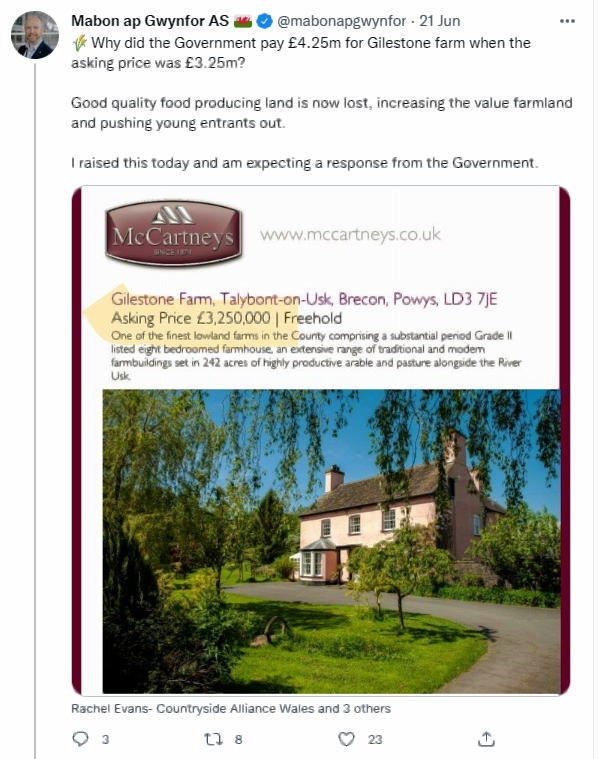
Another explanation might be that despite most Plaid SMs self-flagellating for the heinous sins of the White man and the harm they themselves do the planet by simply existing, many Plaid supporters still associate ‘woke’ with getting up in the morning.
They inhabit the real world where decent infrastructure and communications still matter. That mythic land far, far away, where people have to drive to work. And to the shops. To the doctor, dentist, etc., etc.
You know, the Welsh countryside, of which Labour is so wilfully ignorant.
♦
TIR NATUR
I’ve tweeted a few times about this rather mysterious group, I may even have mentioned it here, on the blog. One reason I call it mysterious is because all I knew about it was gleaned from a GoFundMe page. (You’ll see there’ve been two donations in the past three months.)
Another reason for the ‘mysterious’ tag was that neither the website nor the GoFundMe page gave any names. And I get rather suspicious of organisations that run themselves.
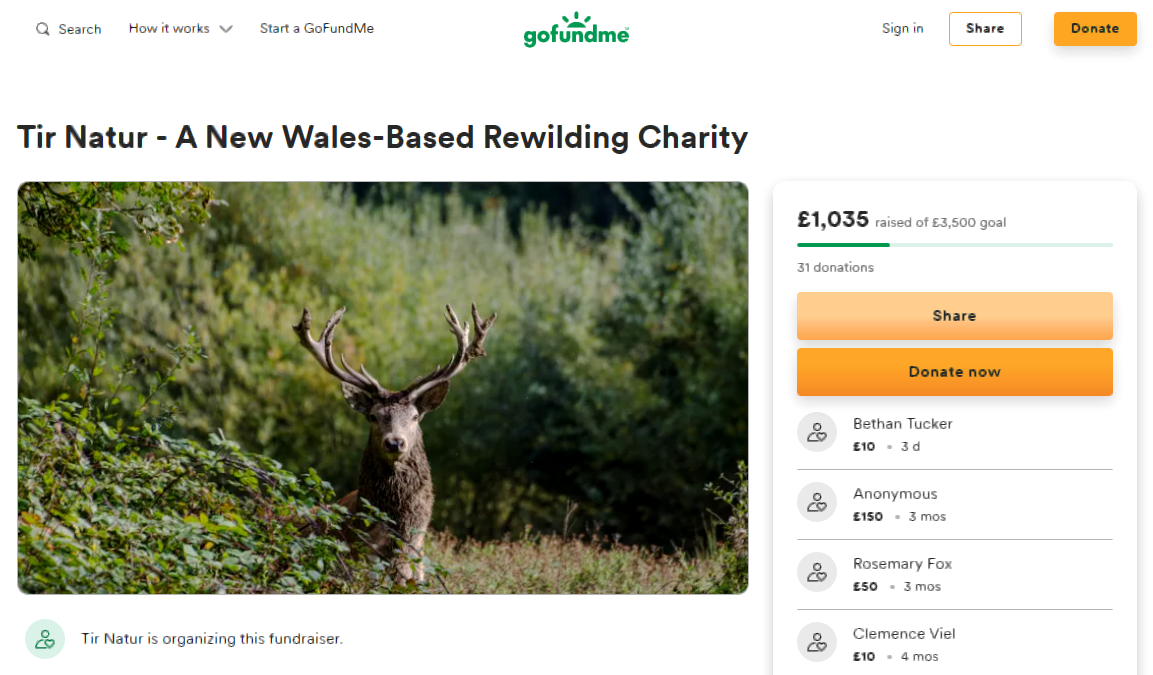
As I say, there was a rudimentary website. And a mention a year ago on the Cardiff Greenpeace Facebook page. (But no names there either.)
And when you read the justification for Tir Natur you immediately think, ‘Hang on, I’ve read that before!’ And so you have, many times. It probably comes from an environmental / rewilding template available online.
Now a source informs me that Tir Natur has finally gone legit and registered as a charity. This move is mentioned on the GoFundMe page, though when I checked a few days ago it hadn’t been updated since the application in March to the Charity Commission.
The contact address given on the Charity Commission website is, ‘Y Beudy, Lanlwyd, Pennant, Llanon, Ceredigion SY23 5JH’. This is on the B4577 between Cross Inn and Llanarth.
To confuse the picture, the GoFundMe page says, ‘Newport, Pembrokeshire’. Though my source and I suspect those involved don’t live in either Ceredigion or Pembrokeshire.
But at least the Charity Commission gives us names. So who are these four people named as Tir Natur trustees? Do you know them? What are their plans?
And does Wales really need yet another environmental / rewilding group?
STOP PRESS!
My source has now sent me this from a recent release by Tir Natur. Knowing more of such things than I he tells me that the image shows a European bison and a golden eagle. Neither of which of course is native to Wales.
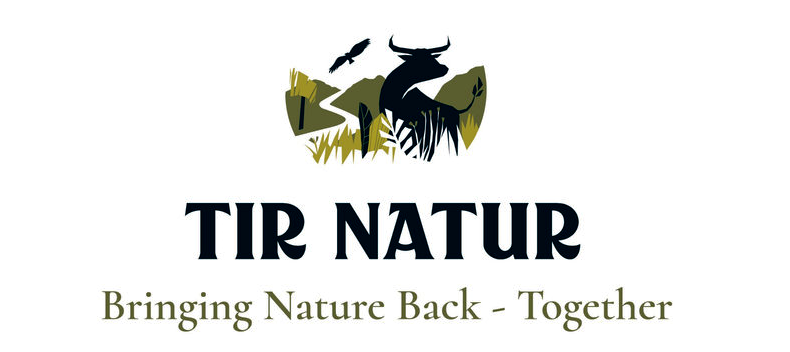
Though breeding pairs of European bison can be found at the Wildwood Trust’s Wildlife Discovery Centre in Kent.
They were introduced to the Trust’s other site in Devon, but removed due to fears of bTB. And they had to leave another site in Scotland when the government concluded they were dangerous and non-native.
Are they now destined for Wales?
Incidentally, that place in Kent is where the poor lynx that ended up at Borth ‘Zoo’ came from.
♦
GILESTONE FARM, AGAIN
A number of Freedom of Information requests – in addition to my own – have been submitted regarding the purchase by the ‘Welsh Government’, for £4.25m, of Gilestone Farm at Talybont-on-Usk.
I was a bit perplexed by the reference in the second FoI to the ‘James Report’. And then it came back to me . . .
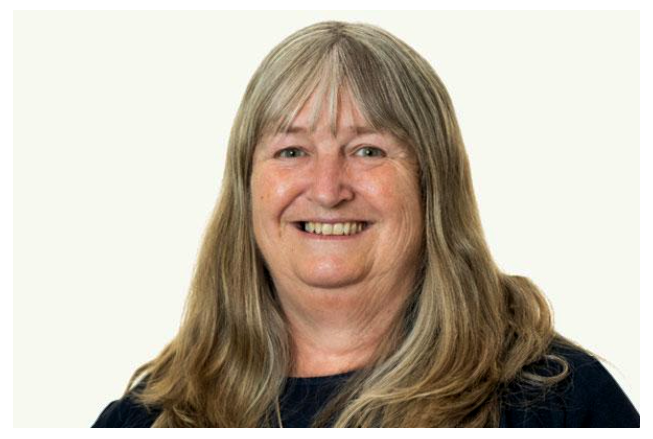
Julie James, the current Minister for Climate Change in the ‘Welsh Government’ has been involved with Gilestone for many years, before she was even elected to what was then the Welsh Assembly in 2011.
It’s a strange affair, with some dark corners, some very dark corners indeed. What I’ve been told involves the Brecon Beacons National Park Authority, certain environmental busybodies, previous owners of Gilestone and a supporting cast that includes a retired Met cop with an ‘interesting’ record.
And of course, Julie James, then a solicitor in Swansea; whose relationship with some of those involved is worth looking into. No, nothing like that. (Really!)
I may be in a position to say more in the near future.
Also worth mentioning is that a number of people are convinced the money to buy Gilestone came from Julie James’ department’s piggy-bank.
If true, then why did Vaughan Gething, Minister for Economy, take the rap in the Senedd? Maybe his ignorance of the deal explains why he spent so much time extoling the virtues of the Green Man festival rather than answering questions he’d been asked about the purchase of Gilestone.
Finally, might these shenanigans explain why the ‘Welsh Government’ is so far behind with its accounts?
Though another explanation for the delayed accounts might be that the ‘Welsh Government’ is virtually broke. For that’s what another source tells me.
If true, then this might explain the Llanbedr by-pass and other projects being scrapped.
‘O what a tangled web we weave . . . ‘.
♦
LABOUR PARTY FREEDOM OF INFORMATION REQUEST
As you know, I’ve written about Bute Energy a number of times. They even got a mention at the end of paragraph 2 in the first section of this post.
What became clear once I started looking into Bute’s activities in Wales was that this company had very quickly realised that Labour Party support would be a big help in realising its plans for 20+ wind farms.
Which explains why Bute recruited to its Welsh Advisory Board redundant Labour MEP Derek Vaughan, and John Uden, the partner of Labour MS Jenny Rathbone, who sits on the Climate Change, Environment and Rural Affairs Committee.

Quite what this Welsh Advisory Board advises on is not stated, but I think we can all guess. And the recruitment didn’t end there.
Also taken aboard the treasure ship Bute was David James Taylor, former spad to Labour stars, from Peter Hain to Rhodri Morgan and Carwyn Jones. Taylor was made a partner in Bute-linked outfit Grayling Capital LLP (though he’s since left), and also given shares in Windward Enterprises Ltd, another Bute company. (Which he still holds.)
It occurred to me that if Bute Energy was so keen to cwtsh up to Labour then political donations should be considered. And so I wrote to the Bruvvers’ HQ in Cardiff.
On June 8 I sent this e-mail:
‘Bute Energy Ltd (Co No: 12474011), in various guises, seeks to build – or at least, obtain planning permission for – some 20 wind farms in Wales. A company has been formed for each wind farm.
Has the Labour Party in Wales / ‘Welsh Labour’ party received a donation or donations from Bute Energy Ltd, or from companies under the Bute Energy umbrella, or from leading director Oliver James Millican, or from other persons, perhaps former employees of Labour politicians?’
But I have received neither acknowledgement nor reply. Can you believe that – the Comrades ignoring me!
♦
‘WELSH GOVERNMENT’ FUNDS NATIONAL TRUST
About a month or so ago we heard that the National Trust was taking over the Hafod Estate in Ceredigion. I covered it here, in the section ‘Bristol fashion’.
The article in the Cambrian News to which I’ve linked suggests there may have been funding involved. To clarify this point I submitted a Freedom of Information request to the ‘Welsh Government’.
Here is the response I received yesterday. With the important bit extracted below.

The ‘Welsh Government’ has gifted an English organisation worth billions of pounds a Welsh asset and also handed over £700,000 for ‘capital investment’. From which the National Trust will profit, through charging visitors.
Many of whom will be Welsh.
And there will almost certainly be more than £700,000. For a well-informed contact with whom I shared this information in advance reminded me that the National Trust will now be eligible for Glastir woodland grants.
As if that wasn’t enough, my contact also suggests that, because the announcement was made by Dawn Bowden, Deputy Minister for Arts and Sport, there will probably be Arts grants as well.
Note that this generosity is explained by quoting the “‘Welsh Government’ wellbeing objectives”. This refers to the Well-being of Future Generation (Wales) Act 2015. Airy-fairy nonsense that has since been used to justify every insanity hiding under the ‘environmental’ blanket.
Environmental concerns are used to disguise giving away our homeland piece by piece – ‘Cos we are savin’ the planet, like’.
The truth of course is that this legislation simply rolled out the red carpet for colonialist exploitation.
It even talks of future generations. But those future generations won’t be Welsh.
UPDATE: Well, whaddya know, a couple of hours after putting out this post I got a reply from Natural Resources Wales to my FoI of June 16.
Main points seem to be that negotiations with the National Trust have been going on since June 2019; no one else was invited to express an interest; NRW has no idea why Dawn Bowden was involved; NRW will continue to manage the Hafod Estate forestry operation.
♦
GREEN HOUSING
My attention has been drawn to this rather curious site which suggests some kind of partnership between the ‘Welsh Government’, the National Eisteddfod, and a company called LivEco, to build “sustainable homes at affordable prices”.
The location of these desirable properties being Great House Farm in Cardiff, between Culverhouse Cross and St Fagan’s National Museum of History.
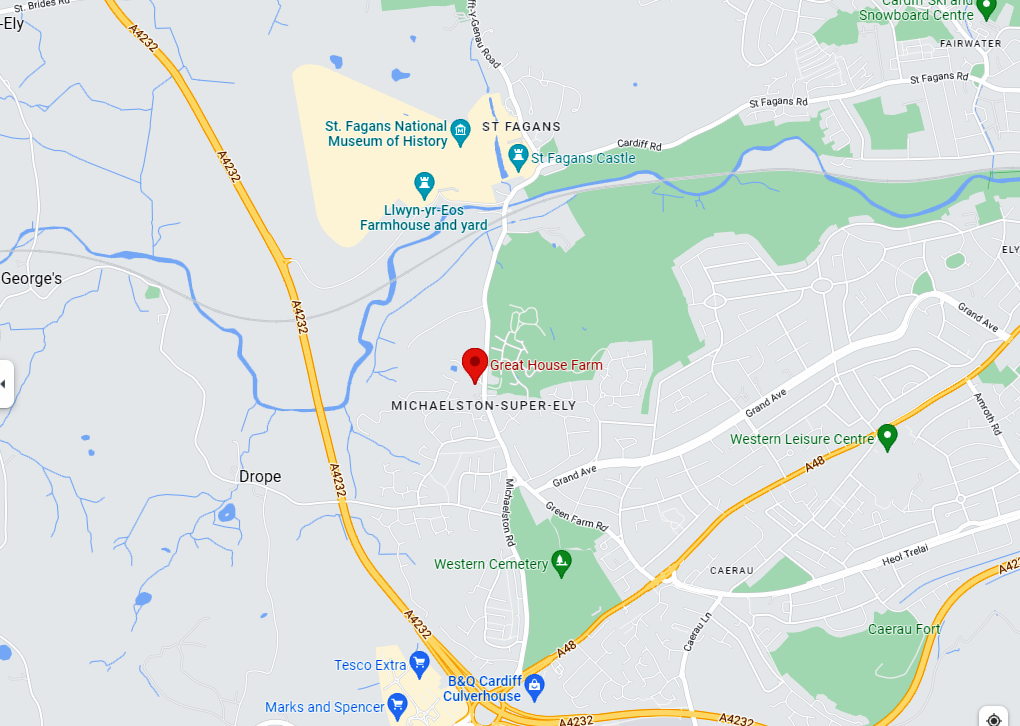
So let’s look at this company, LivEco. Companies House tells us LivEco Homes Ltd was formed in September 2018, but it’s dormant. The sole director is a Welshman, Daniel James Ball, who seems to live in West Sussex.
Ball’s active company is Mulcare-Ball Ltd. The other director being a woman I assume to be his wife.
So why are we being asked to believe that a dormant company is building these dwellings at Great House Farm?
Mulcare-Ball has an arrangement (charge) with the Principality Building Society. Though the date given here is February 2, 2013, the document itself takes us back a year and also mentions Hale Construction Ltd.
If it’s this company, then Hale Construction was a one-man band on Merseyside, Incorporated December 2011 and Dissolved August 2015 without, apparently, making a penny.
Another company worth mentioning is Great House Farm Community Ltd, which I assume to be a residents’ association. This was Incorporated in March 2013, which makes sense; though the only director or member was Ball until June 25 last year. When he was replaced by two others using Great House addresses.
Something else that makes me a little wary of this whole project is what I learnt from the Land Registry title register.
First, it tells us that Daniel James Ball and his wife bought this land in July 2009. We also learn that the properties built by Mulcare-Ball Ltd are being leased rather than sold.
The ‘Welsh Government’ has more than once expressed a desire to phase out leasehold in Wales, so why is it in partnership with a company building properties to lease?
Or, to put it another way, why does the ‘Welsh Government’ need to be involved at all? The same question could be asked of the Eisteddfod.
I may return to this subject.
♦
NO COAL
The Aberpergwm mine, near Glyn-Neath, produces highest quality anthracite coal that is used for all manner of purposes, including water filtration. But it will not be chucked on a fire or shovelled into a furnace.
It is rarely if ever burned.
In January, approval was given for mining operations to continue. This prompted the Green Party of Englandandwales to burst into, ‘When will they ever learn’, with Julie James’ deputy Lee Waters joining in the chorus.
(In an eye-watering falsetto because someone had him by the balls!)
The latest news is that a legal challenge is to be mounted by a group called the Coal Action Network (CAN). If you’ve never heard of them, that may be because the company wasn’t formed until February 16.

And it is a standard, commercial entity. Not a Community Interest Company (CIC), or any form of community benefit framework. I suspect it claims to be an umbrella group for smaller, more local organisations.
Though I’m not aware of any genuinely local opposition at Aberpergwm itself. Certainly not from the 200 or so people who work there. Nor from the businesses benefitting from the money those workers put into the local economy.
The address given for the Coal Action Network is Halton Mill, in Lancaster, north west England, owned by Green property developer Lancaster Cohousing. Which suggests it’s little more than an accommodation address for CAN. They certainly don’t get a mention on the website.
It would be easy to dismiss the Coal Action Network as just another little gang of over-excited eco zealots. But these groups often front for bigger players, or there’s serious money behind them.
So be watchful out there. Protect Welsh jobs and Welsh interests from the misguided attention of the brainwashed foot-soldiers of the World Economic Forum and others with globalist agendas designed to crush the little guy. Agendas enthusiastically endorsed by socialists.
And, finally, look out for these clowns sending letters to local papers, lobbying politicians, and pretending they’re local objectors.
♦
STUMP UP FOR TREES, INTERTWINING
A group getting a lot of publicity, and regular attention from the ‘Welsh Government’, is Stump Up For Trees (SUFT). Predictably, and like so many others of its type, this little enterprise is based in south Powys.
Though cut through the enviro-bullshit and SUFT seems to be little more than a greenwashing operation for Utility Warehouse.

Most of those involved with SUFT have either relocated to Wales or don’t even live in Wales. For as with all these ‘conservation’ land grabs, Welsh involvement is minimal.
Though the website informs us, of the man in the photograph, and founder of SUFT, ‘Dr Keith Powell is a seventh-generation Black Mountains farmer and a vet’. Though I don’t think he’s actually done much farming, and came home when he realised there was serious money to be made in trees.
Stump Up For Trees is registered as a charity. Though when I went to the Charity Commission website to check the details I was somewhat surprised not to see Powell listed as a trustee. I assume the desired impression is that of hands-off trustees.
But who do we see there!
Why! it’s Richard James Roderick, who farms across the Usk from Gilestone farm. As I told you in my earlier post ‘Gilestone Revisited’, Roderick was taken to the USA in 2018 by Dŵr Cymru. After which he was debriefed by Natural Resources Wales’ Land Management Forum Agri-Pollution Sub Group.
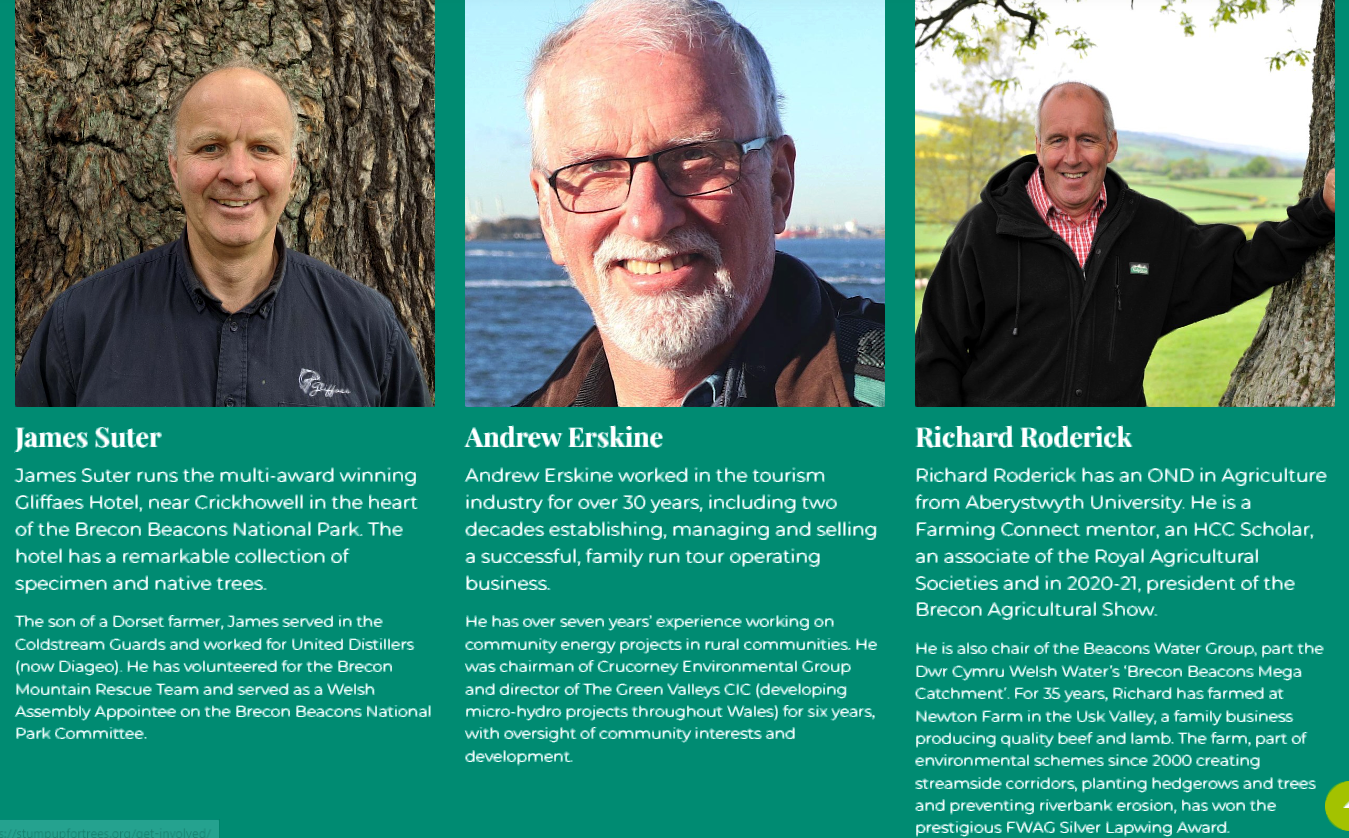
Then he and his companion on the US trip (and at the debriefing), Keri Davies, set up the Beacons Water Group. And do you know who joined them at BWG – none other than Charles Weston, the man who sold Gilestone to the ‘Welsh Government’ for the ludicrous sum of £4.25m!
As if that wasn’t enough, another BWG director, Tony Martineau, teaches at Coleg Soros, Talgarth. While George Soros’ favourite educational establishment, Bard College, has links with the Watershed Agricultural Council, the hosts for the 2018 US trip.
Enough! Old Jac can’t take any more connections.
Why should the ‘Welsh Government’s favourite farmer be involved with Stump Up For Trees? Then again, why not, he seems to be involved in everything else?
And even though the Bruvvers in Corruption Bay love Roderick, he’s a ronk Tory.
♦
MORE TREES . . . OR ELSE!
To make sense of the ‘Welsh Government’s latest assault on the farming industry you must understand the Labour Party’s relationship with the Welsh countryside.
Labour has no MPs and no SMs representing rural constituencies. For these seats either vote Conservative, Plaid Cymru or, irregularly, usually in Powys, Liberal Democrat.
It wasn’t always so.
There was a time within living memory when Labour could rely on the votes of farm labourers, and even smaller farmers. Also, other rural, working class people. The Merionethshire seat – now part of Dwyfor Meirionnydd and held by Plaid Cymru for almost 50 years – was a straight fight between Labour, centred on the slate town of Blaenau Ffestiniog, and the Liberals, still relying to a great extent on the chapel vote.

Then came the 1960s, and the national reawakening. The protests and the bombs. Tryweryn, Mudiad Amddiffyn Cymru (MAC), the Free Wales Army (FWA), Cymdeithas yr Iaith Gymraeg CyIG) . . . and the rise of Plaid Cymru.
Labour now saw its hegemony in Wales threatened by a new force that it believed to be essentially rural in character. Certainly rural in origin. And Labour has been wary of the countryside, and its native inhabitants, ever since.
In many Labour politicians this suspicion became outright and undisguised hostility.
The rise of the environmental movement, coupled with the powers given by devolution, have allowed the Labour Party through successive ‘Welsh Governments’ to exert control over rural areas where it has little or no electoral support. While more recently, under the influence of ‘environmentalists’ eyeing Welsh land, exacting what can only be interpreted as revenge.
Which brings us up to date.
Labour’s activists in rural areas tend to be English, middle class, vegetarian (if not vegan, or subsisting entirely on water and good karma), most of them climate / environment ranters who compare hard-working farmers to concentration camp guards.
This is the background for understanding the Welsh Government’s latest attack on farmers encouraged by – possibly written by – the aforementioned environmental groups.
Though this latest pronunciamiento from Corruption Bay also helps us understand the long-term objectives. And makes a few other things clear.
The ‘Welsh Government is attempting a divide and rule strategy with farmers. Certain farmers are being wooed, and so perhaps is the National Farmers Union. And it seems to be working.
It’s no coincidence that these favoured farmers tend to be Tory-voters, on better land, suited to tree planting, and in almost exclusively English-speaking areas.
Which means that the excluded farmers are more likely to be found on marginal land, more difficult for growing trees, possibly tenant farmers, and certainly more likely to be Welsh speaking. (And Farmers Union of Wales members?)
In fact, areas such as the Summit to Sea rewilding project was hoping – with ‘Welsh Government’ support – to take over. The areas from where Labour, in the 1960s, perceived the ‘threat’ to have emerged.

Which means that this assault on farmers might be interpreted as an attack on the Welsh language, and Welsh rural culture in general. If so, then the politicos in Corruption Bay, and the enviroshyster land-grabbers whispering in their ears, are in for a fight.
Predictably, the announcement was welcomed by Kate Beavan. Who’s she? You haven’t been paying attention, or following the links, have you?

Kate Beavan, as the Stump Up For Trees website tells us, ‘ . . . joined SUFT at the beginning of 2021. She is actually employed by our partners and friends, Coed Cymru.’
Kate Beavan may have been recruited to Coed Cymru by director Philip David Jayne, who lives in Crughywel.
Yet more bloody connections!
To explain . . .
Coed Cymru is one of the 357 (and rising) ‘woodland’ groups currently operating in Wales. Fighting like ferrets in a sack to take over Welsh land and get their sweaty mitts on Welsh public funding.
When you check out the Companies House entry for Coed Cymru Cyf you realise that, despite the company name, there’s little Welsh involvement.
But plenty of Welsh funding.
‘Plus ça change . . . ‘.
♦
UKRAINE AND THE WORLD ECONOMIC FORUM
It would be inhuman to suggest that anything good is coming from the death and suffering in Ukraine. And I won’t do that, but harsh lessons are being learnt.
Among them, the realisation that to pretend an advanced economy can rely on intermittent renewables to supply its energy needs is madness. As Germany is learning.
The drive for ‘Net Zero’, orchestrated by The United Nations and the World Economic Forum, is taking hits daily as collateral damage from the conflict in Ukraine. With Germany perhaps the biggest loser.
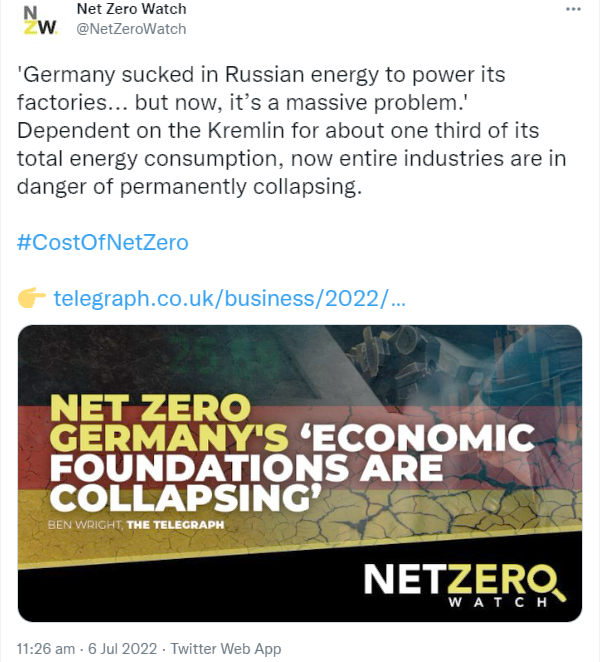
Another casualty could be the Netherlands, where farmers, fishermen, truckers and others are protesting because the government wants to reduce the number of farms by 30 per cent.
But the mainstream media largely ignores this!
We are in dangerous times. Supranational bodies like those mentioned want to regulate all aspects of human behaviour. They have captured many national governments, media outlets, and social media giants, who are urged to suppress divergent views as ‘disinformation’.
The justification being that the planet is in grave danger, and so we need to be saved from ourselves . . . all for our own good, of course.
With the result that we are sleepwalking into a form of totalitarianism that sits astride the unicorn of environmentalism.
And this is another reason we – through arming and exploiting brave Ukrainians – are waging war on Russia – because Vladimir Putin refused to bow to these supranational tyrants.
But the ‘Welsh Government’ surrendered long ago. And gave up Wales for sacrifice.
♦
ENLARGED SENEDD
Last weekend in a smoke-free conference room ‘Welsh’ Labour decided to back the plan for increasing Senedd numbers from the current 60 to 96. Which was widely supported, I believe only the Conservative and Unionist Party was opposed.
But part of the bigger package was a change in how Senedd members will be elected in future. And this proved much more contentious. With four constituency Labour Parties (CLPs) – Merthyr Tydfil, Rhondda, Swansea East, Llanelli – voting against.
To explain . . .
Under revised parliamentary boundaries Wales will have 32 Westminster seats. (Down from the current 40.) What Labour proposes (and Plaid Cymru presumably agrees with) is that these new constituencies should be paired, giving us 16, and that each of them should elect six Senedd Members, thus making up the 96 total.
This is to be done using the ‘closed list’ system. Voters choose a party and have to then accept the party’s choice of candidates.
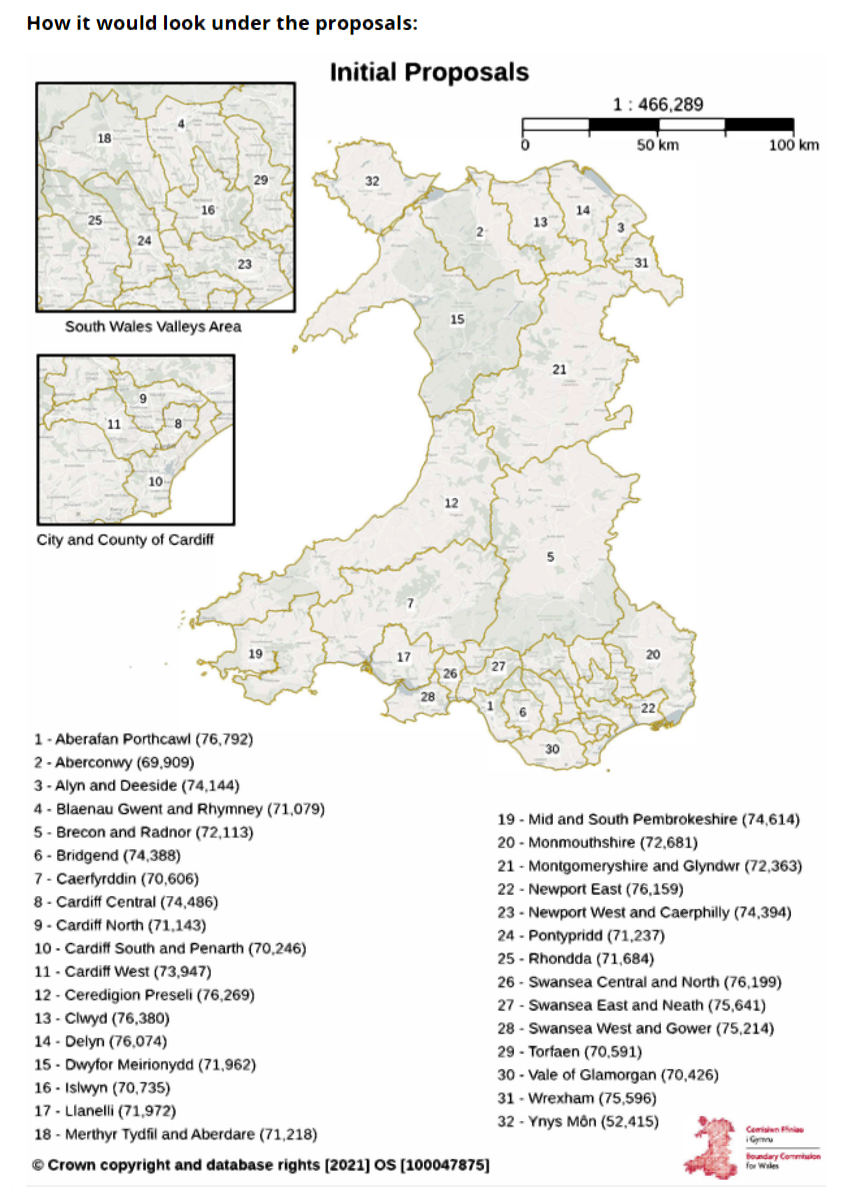
This is a system designed to favour larger parties and to inhibit the emergence of new parties. Which is no more than we should expect from Labour. For like so many political parties with a socialist heritage Labour is fundamentally undemocratic.
I’m still waiting for Labour’s partner in the current alliance down Corruption Bay to explain why it’s gone along with this system. Though I get the impression Plaid would rather not discuss it.
Labour has tried desperately to polish this turd by promising gender equality. But as Labour has signed up to self-identification, and is a major financial backer of Stonewall, it will obviously accept as ‘women’ men who identify as women.
Which could mean that the new system, designed to achieve gender balance, actually gives us a lower percentage of biological females than we see in the Senedd today!
And then there are other minorities, those so vocal in “breaking down barriers” . . . most of which they themselves have erected. (Or simply imagined.) They’ll demand to be ‘excluded’ no longer. And because they support the Labour Party because the Labour Party funds them their wishes will be granted.
That could give us a Senedd in which the majority is grossly underrepresented.
But who cares – ‘Cos it’s progressive, innit!’
My position is that I do not accept this anti-democratic nonsense. And I would support the UK government stepping in to block it. In fact, I would support the UK government putting an end to devolution itself.
For devolution has delivered nothing to those with whom I identify.
Whereas the SNP in Scotland, returned time after time, has made many Scots believe their country could be even better with independence, here in Wales, the incompetence and waste our people have experienced from malleable mediocrities in Corruption Bay for 23 years makes too many Welsh believe that independence would be even worse.
I remain a nationalist who wants independence, but I see devolution not as a stepping-stone but an obstacle. Maybe that was the intention all along.
And when you think back to what you’ve read here, can you disagree?
♦ end ♦



